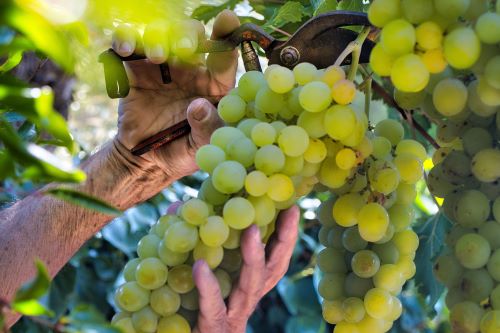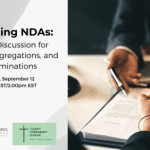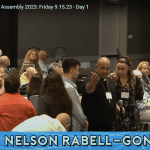Jesus’s parable of the workers in the vineyard holds a mirror up to the harsh realities of exploitative economic and agricultural systems so that we might imagine a world that nurtures both land and people.

Here are ideas for reading and preaching Matthew 20:1-16, the parable of the workers in the vineyard. This is part of the EcoPreacher 1-2-3 series to equip preachers and congregations for engaging the Bible through an ecological lens. These texts are assigned as part of the Revised Common Lectionary for the Seventeenth Sunday after Pentecost, Year A.
[Listen to this rich conversation about the parable of the workers in the vineyard on The Green Lectionary Podcast, ep. 3, “What do the grapes think?” (Matt. 20:1-16) where I join the conversation with Debra Reinstra and Josh Scott, hosted by Derrick Weston.]
Eco-Exegesis
Eco-exegesis is a method of interpreting the biblical text through a green lens using the principles of ecological theology.
Matthew 16:11-12
[The workers] grumbled against the landowner, saying, ‘These last worked only one hour, and you have made them equal to us who have borne the burden of the day and the scorching heat.’
It’s tempting to spiritualize the parable commonly known as “the workers in the vineyard” in Matthew 20:1-16. The reality of oppressed workers as well as land that is gobbled up by the wealthy for extractive profit is usually overlooked in favor of repeating the adage about the last being first and the first being last.
But if we bring those workers and that land to the foreground, we can see that the parable has an important social and economic critique. And it’s a critique that Jesus wants us to wrestle with.
Matthew 20:1-16 is not the only passage with a sharp eye on the ruthless economy of Jesus’s day. The stories about the unforgiving servant (Matt. 18:23-35) and the tenant farmers (Matt. 21:33-45) also feature a wealthy man with power to make or break the lives of his servants and workers. The parable of the workers in the vineyard focuses on day laborers who were “an extremely vulnerable class that were regarded, in some ways, as lower than slaves.” (T. Wilson Dickinson, The Green Good News: Christ’s Path to Sustainable and Joyful Life, Cascade, 2019, 100).
Often existing in a liminal space outside of family structures and stable communities, day laborers made up about 5-15% of the population in Jesus’s day, according to William Herzog, author of Parables as Subversive Speech: Jesus as Pedagogue of the Oppressed (Louisville: Westminster John Knox, 1994). Using a day laborer for the most difficult work meant that the landowners could avoid damaging their own property – their slaves.
What we must notice in this parable is the seemingly endless supply of these day laborers. Like today’s migrant workers who also occupy a liminal space and are taken advantage of, the day laborers in Jesus’s time were expendable, exploited, and excluded from the wealth they produced for the landowners.
They have no property, no rights, no support system, and are at the mercy of those who hire them.
Such mercy seems to be on display in Matthew’s parable. The rich landowner calls himself “generous” (v. 15) for giving the workers at the end of the day the same pay as those who worked more hours. Because of this, the traditional interpretation of this parable equates the landowner with God. But is this really the case?
If so, then the ramifications are troubling. Because God as the vineyard owner does nothing to address the underlying system that leads to the downward spiral of poverty for these day laborers. It also means that God intentionally pits these day laborers against each other, as the landowner did in this story. And it means that God is, frankly, unfair to those who are most in need. In other words, this behavior is not characteristic of the God that Jesus proclaimed.

So, then, how is the “kingdom of heaven” like this vineyard owner?
Jesus uses this parable to hold a mirror up to an exploitative economic system and makes us question our role in that system. Wilson Dickinson suggests that Jesus’s parable urges listeners to “call into question the order and empire that creates a situation where people are forced off their land, where communities have their resources extracted, where subsistence is replaced with desperation and people are forced to work for the elite, who imagine themselves to be the owners of God’s creation to do with as they please” (Dickinson, 102).
Perhaps this parable is meant to reveal the jagged truth about an economic system that seems to run so smoothly for those who enjoy sweet grapes on their plates.
“The last shall be first and the first shall be last”
Subsequently, it may be that the parable’s final line, “The last shall be first and the first shall be last,” is not intended as an aphoristic moral of the story that conveys an abstract principle. Rather, it may be interpreted as more of a rueful observation that Jesus is making. “It reveals the hollow generosity that lines people up so as to maintain the asymmetrical power of the rich giving scraps from their abundance to the poor, and which fosters antagonisms between those who should find solidarity” (Dickinson, 102).
Preachers can invite their listeners to imagine encountering this parable from the perspective of the under-paid, often undocumented day laborers of our own time who are the unseen providers of the food we eat every day. For those churches who partake of Holy Communion, they might inquire about the labor conditions of those who pick the grapes for the wine of the sacrament.
Preachers might also imagine this parable from the perspective of Creation itself. What would it look like for the vineyard and the land if the workers co-owned the land, shared in its abundance, and equally shared the burden and profits from the harvest?
1 Eco-Idea
The Eco-Idea is one succinct statement that tells us who God is and/or what God does in relation to Creation and how we should respond as people of faith.
Jesus’s parable of the workers in the vineyard holds a mirror up to the harsh realities of our exploitative economic and agricultural systems so that we might imagine a world that nurtures both land and people.
2 Eco-Questions
Eco-Questions are what we can ask to help a congregation draw out the implications of the Eco-Exegesis and Eco-Idea.
- Do you know who picked the produce you ate today, where it came from, and what pay the workers received for their labor? Have you thought about undocumented workers and what they endure?
- In what ways does your denomination support farmworkers? How can you support these efforts?
3 Eco-Actions
Eco-Actions are ways that a congregation might respond to the Eco-Idea and Eco-Questions. One of these possibilities may have salience for your ministry context.
- Visit the United Farm Workers website to learn about the ways in which they are organizing to protect agricultural workers. https://ufw.org/
- Host a forum to learn about the efforts to fight for the rights and legalization of farmworkers. Invite representatives from workers’ unions to speak to your church. Organize congregants to join the campaign asking for Congress to act: https://act.seiu.org/a/fwmapledge?ms=web
- In your worship prayers, lift up the agricultural workers who endure deadly heat due to the worsening climate crisis. Take up a special offering to support farm workers, which you can donate here: https://act.seiu.org/a/dec2022?ms=w.
[We go even deeper on the parable of the workers in the vineyard on The Green Lectionary Podcast, ep. 3, “What do the grapes think?” (Matt. 20:1-16) where I join the conversation with Debra Reinstra and Josh Scott, hosted by Derrick Weston.]
Read also:
Latinxs, the Bible, and Migration: Book Review
Climate Migration: How Should the Church Respond?
Climate Change Impacts Health, Families, and Wallets
EcoPreacher 1-2-3 is a partnership between the Rev. Dr. Leah Schade and the Interfaith Center for Sustainable Development, publishers of Eco Bible, a Jewish ecological commentary on the Hebrew Scriptures. EcoPreacher 1-2-3 provides Creation-centered sermon preparation that is short, accessible, and based on a solid biblical foundation. To see other EcoPreacher ideas and to sign up to receive future EcoPreacher 1-2-3 installments, click here.

The Rev. Dr. Leah D. Schade is the Associate Professor of Preaching and Worship at Lexington Theological Seminary in Kentucky and ordained in the ELCA. Dr. Schade does not speak for LTS or the ELCA; her opinions are her own. She is the author of Preaching in the Purple Zone: Ministry in the Red-Blue Divide (Rowman & Littlefield, 2019) and Creation-Crisis Preaching: Ecology, Theology, and the Pulpit (Chalice Press, 2015). She is the co-editor of Rooted and Rising: Voices of Courage in a Time of Climate Crisis (Rowman & Littlefield, 2019). Her newest book is Introduction to Preaching: Scripture, Theology, and Sermon Preparation, co-authored with Jerry L. Sumney and Emily Askew (Rowman & Littlefield, 2023).

















